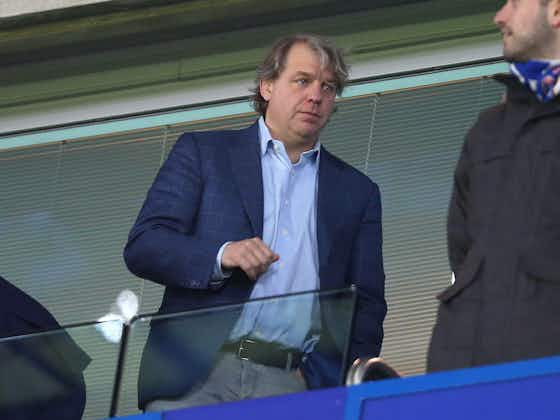EPL Index
·18 November 2024
Report: Chelsea’s Spending Dominates Premier League Ownership

In partnership with
Yahoo sportsEPL Index
·18 November 2024

The Athletic’s recent analysis on Premier League ownership sheds light on the diverse levels of investment across clubs, offering an intriguing glimpse into football’s financial elite. From Chelsea’s extravagant spending to Brentford’s smart sustainability, the financial strategies of these owners have become a key determinant of each club’s fortunes.
Chelsea, under BlueCo ownership, stand at the pinnacle of financial commitment, with an astonishing £2.65 billion invested. The 2022 takeover saw the American consortium inject a £1.75 billion infrastructure commitment and over £1 billion spent on player acquisitions in just two years. Their plans to either rebuild Stamford Bridge or relocate further underline their ambitious vision.
The Athletic notes: “Spending records have since been obliterated by Chelsea in the last two years, with more than £1billion invested in new players.”
Chelsea’s model showcases the influence of deep-pocketed investors in reshaping a club’s trajectory. However, their financial dominance raises questions about sustainability and the Premier League’s competitive balance.
Manchester City’s evolution under Sheikh Mansour and the £1.3 billion poured in by the Abu Dhabi United Group is a masterclass in strategic investment. While early years brought colossal spending, City’s revenues now exceed £700 million annually, making them largely self-sustaining.

Photo: IMAGO
The Athletic highlights the legal challenges City face, stating: “It is also alleged that City breached the Premier League’s spending rules on 115 occasions… something they strenuously deny.”
Despite controversies, City exemplify how meticulous planning and relentless investment can lead to European dominance, capped by their Champions League win in 2023.
Everton’s story under Farhad Moshiri illustrates the perils of financial mismanagement. With £750 million invested and rising debts, the club has struggled to translate this into success on the pitch. The Athletic describes Moshiri’s tenure as “a ruinous period that has demanded sizeable funding to construct a new stadium.”
Everton’s impending takeover by Daniel Friedkin promises a potential lifeline, but the damage done underscores the need for prudent financial strategies.
Clubs like Brighton and Brentford showcase how targeted investments and visionary leadership can deliver success without breaking the bank. Tony Bloom’s £494 million has transformed Brighton into a competitive Premier League side, while Matthew Benham’s £104 million has elevated Brentford through a data-driven approach.
In contrast, Tottenham and Manchester United highlight differing approaches to leveraging revenues and external investments while minimising shareholder funding.
Premier League fans often debate the effectiveness of various ownership models, and this report offers plenty of talking points. For many, Chelsea’s approach feels both thrilling and concerning. They’ve smashed spending records, but does financial muscle trump sporting merit? Fans of smaller clubs may feel disillusioned by the widening gap between the elite and the rest.
City’s success feels like a blueprint for clubs with the resources to match their vision. Their focus on sustainability ensures they remain a formidable force. Yet, ongoing allegations remind supporters that financial power can invite scrutiny.
Everton fans, meanwhile, might feel betrayed by the misuse of funds. While the new stadium is a beacon of hope, their on-pitch struggles illustrate that money alone doesn’t buy success.
Supporters of Brighton and Brentford, however, might point to their clubs as models of efficiency and ingenuity. For them, success is not just about spending but spending wisely—a message perhaps lost in an era of billion-pound budgets.
Ultimately, fans value ambition but crave accountability. Owners with clear strategies, whether big spenders or prudent planners, tend to inspire faith. As the Premier League grows, the interplay between money, ambition, and identity will continue to shape its narrative.



























































